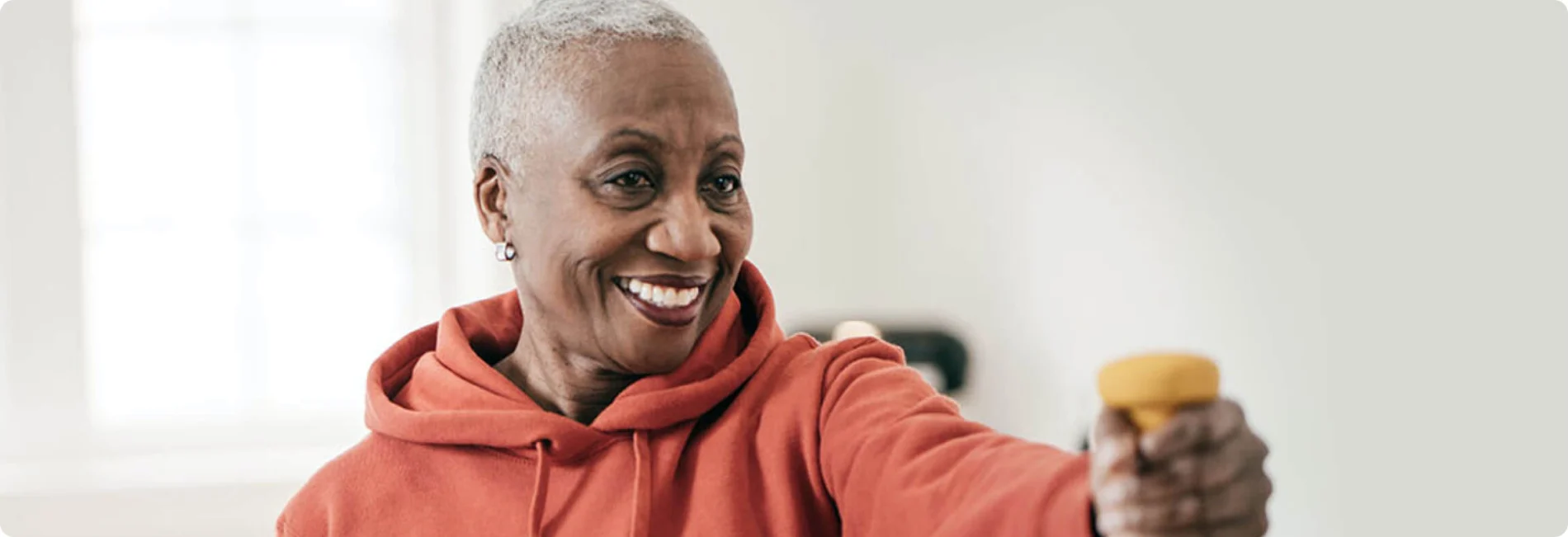Why it’s important to stay active in times of self-isolation
Physical Health · Apr 16, 2020
As we all try to “flatten the curve” and decrease the spread of COVID-19, most of us are working remotely and have been encouraged to stay in the confines of our home. This shift in routine can be frustrating for many. One way to manage this frustration is to maintain your usual routine as best as possible. This includes your exercise!
Keeping your body moving has many benefits, particularly in times of stress. Here are three things to keep in mind while exercising at home or during isolation.
1. Decrease sedentary time
Don’t forget to stay active! Working from home eliminates the commute to and from the office and lunchtime walks for food. Even the short stroll to the water cooler and back was a great way to stretch your legs and remind your body it’s meant to MOVE! It’s important to find ways to keep being active during the day at home, no matter how small it may be.
Start by setting a timer/reminder on your phone or watch to get up at least once per hour and then try out something from this list of short activity breaks:
Short exercise app videos
Take a phone call while walking around the house
Do a quick chore (load/unload the dishwasher, do a load of laundry, sweep or vacuum)
Make a healthy snack
Play a game with your kids or dog
If possible, leave your phone in another room and get up to check your messages
It’s important to not get discouraged if you feel that you can’t keep up with your regular regimen. Making sure you stay active (no matter how small!) will help to offset the decrease in training and help you maintain your current fitness level.
2. Cognitive health and well-being
Not only is the shift to working from home and disruption of our daily routines a stressful experience, but also it will likely become increasingly difficult to step away from the stream of work emails and COVID-19 news flooding in. This constant stimulus and the uncertainty of it all can be draining for many people who are feeling anxious. Fitting in an activity break can help you cope with these stressors and optimize your health in a number of ways.
Exercise (any type of physical movement) will produce endorphins. This will help to improve your mood and your ability to cope with the ongoing stressors.
Exercise helps you build and maintain a healthy immune system by promoting good circulation, which is necessary for efficient filtration of any potentially threatening cells.
When you are physically active there is an increased delivery of oxygen to your brain. This helps to support your focus, concentration and memory. Fit in some exercise first thing in the morning to help you work efficiently during the day or use it as a midday break to keep you fresh for the afternoon.
Use your exercise break to connect with someone. Call a friend or family member while you walk or perhaps do a workout together over Facetime. This social connection is important for mental health.
Lastly, regular exercise can help your ability to fall asleep and improves your quality of sleep.Now more than ever, it is important to find ways to maintain your mental health. Use exercise and activity to give yourself a break from work and the news.
3. Time to try something new!
Think of this change in routine as an opportunity to explore different avenues in the fitness world. It’s an excellent time to try something you’ve been putting off (physio exercises!) or new altogether. Get creative!
Learn how to juggle
Practice those difficult yoga positions
Take up tai chi
Plant a new garden or clean out an existing one
Dust off that cardio equipment in your basement and hop on
If you’ve been experiencing nagging aches and pains, this is the perfect time to put in the work necessary to build the foundational strength and stability required to resolve these issues. Most strength and stability exercises for knees, glutes, hips, trunk and shoulder injuries can easily be done at home.



